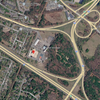Psychiatrist Griffan Randall emphasizes mind-body connection
GUILDERLAND — There are a finite number of diagnoses, says Griffan Randall, a doctor of osteopathic medicine, but an infinite number of human experiences that lead to the diagnoses. She strives to make treatment plans as varied as each person’s experience, she said.
She wants each patient to find hope when it may seem that there is none.
Randall recently marked the one-year anniversary of opening her private psychiatric practice in Slingerlands, in the Slingerlands Medical Arts Building at 1240 New Scotland Rd.
Randall lives in and grew up in Guilderland. She attended Guilderland schools through her sophomore year in high school and then transferred to Emma Willard, graduating in 2004, she said. She graduated from medical school at the New York College of Osteopathic Medicine in Old Westbury in 2013.
She is the daughter of Guilderland Town Justice Denise McCarthy Randall. Her mother and her father, Robert G. Randall, are attorneys and own The Randall Law Firm in Guilderland. Griffan Randall is married to former Albany County Legislator and new Town Justice Bryan Clenahan.
She sees patients ranging from adolescent to geriatric, Randall says, who are diagnosed with, for instance, depression, anxiety, post-traumatic stress disorder, maternal/fetal psychiatric conditions, attention-deficit/hyperactivity disorder, and schizophrenia.
In addition to medication management, she uses various individual therapeutic treatments, including innovative treatments like genetic testing and medical marijuana.
Genetic testing can be helpful, she said, if people want to get a sense of their internal metabolic and enzyme makeup, since this can provide information about what medications might or might not work well for that individual. When appropriate, she said, she has sometimes certified patients for use of medical marijuana; the conditions that this can be done for are post-traumatic stress disorder and opioid-use disorder.
People from different age groups may have different kinds of concerns, but they share a need to find hope, she said.
With the adolescents on one end of the age range of her patients, she says, concerns may center more on family dynamics and social-interpersonal relationships, Randall said. The personality and character are beginning to become more fully formed, she said, as the adolescent asks, “Who am I, and who am I going to become?” With adolescents, she said, her focus is often on helping patients find confidence, comfort, and self-assurance.
With her geriatric patients, she said, there may be end-of-life and developmental issues, neurocognitive diagnoses such as Alzheimer’s, Huntington’s, and Parkinson’s, and more comorbidities. “As we get older, we tend to have more of a medical history, unfortunately,” she said.
She is a doctor of osteopathy, an O.D., which is recognized, she said, by the American Medical Association as equivalent in terms of skill and ability to a doctor of medicine or M.D., but involves “some different labs to attend and skills to learn in osteopathic manipulation.” She does not use manipulation techniques with her patients, but loves osteopathy’s “central tenet of mind-body connection,” she said.
“I genuinely believe one is not independent of the other,” she said. “When there is something happening in the mind, I believes it manifests in behavior or some aspect of the body. And on the other hand, if we have an issue with some part of the body, it’s going to affect our mind.”
Her expertise reaches well beyond her office walls.
During the past year, Randall was interviewed as the psychiatric expert for an Investigation Discovery television series; performed Federal Aviation Administration evaluations of pilots’ mental health; testified at a public hearing in favor of a bill, sponsored by Clenahan, banning conversion therapy for minors in Albany County; and served as the consulting Psychiatrist for Health Quest OB/GYN residency program in Poughkeepsie.
An innovative therapy she is excited to begin soon is puppy therapy, featuring her French bulldog, Zuul, who is “still working through some of the early puppy stages,” she said. A dog is part of the environment she had always hoped to create in an office, she said, “loving dogs myself and seeing the effect they can have when people are anxious or having a bad day.”
She concluded, “It’s remarkable to me, the effect a non-human can have. A nonjudgmental presence can be very relaxing.”



